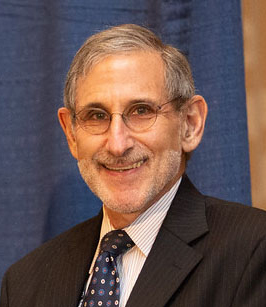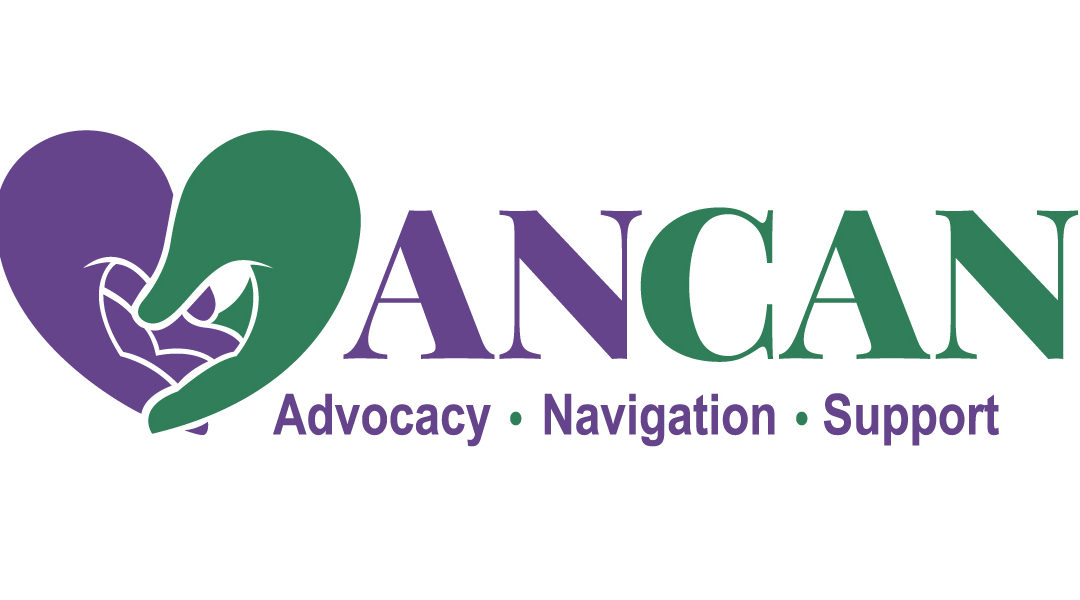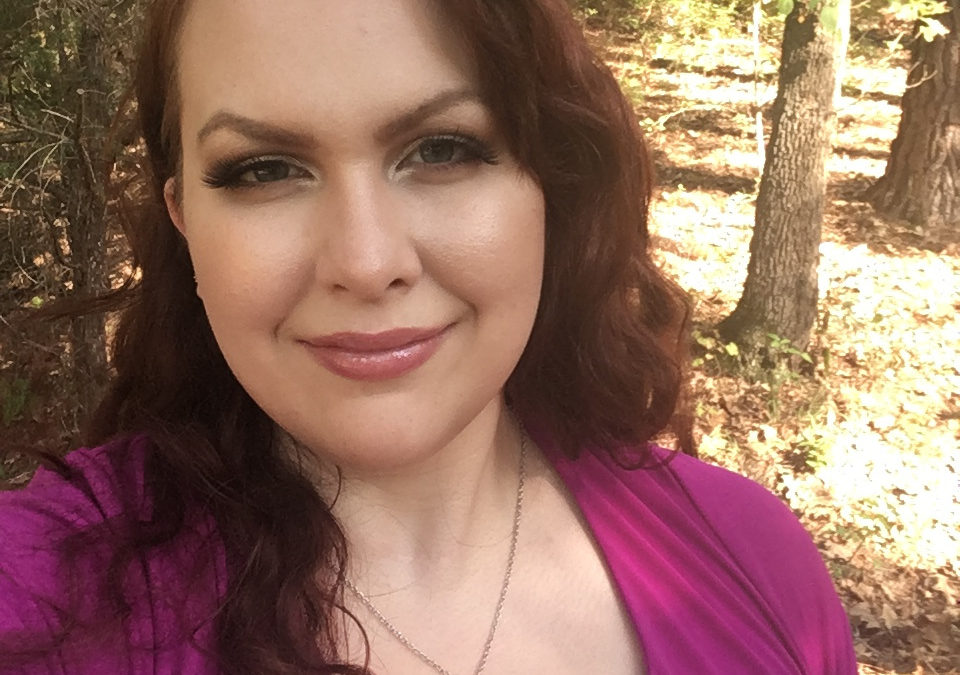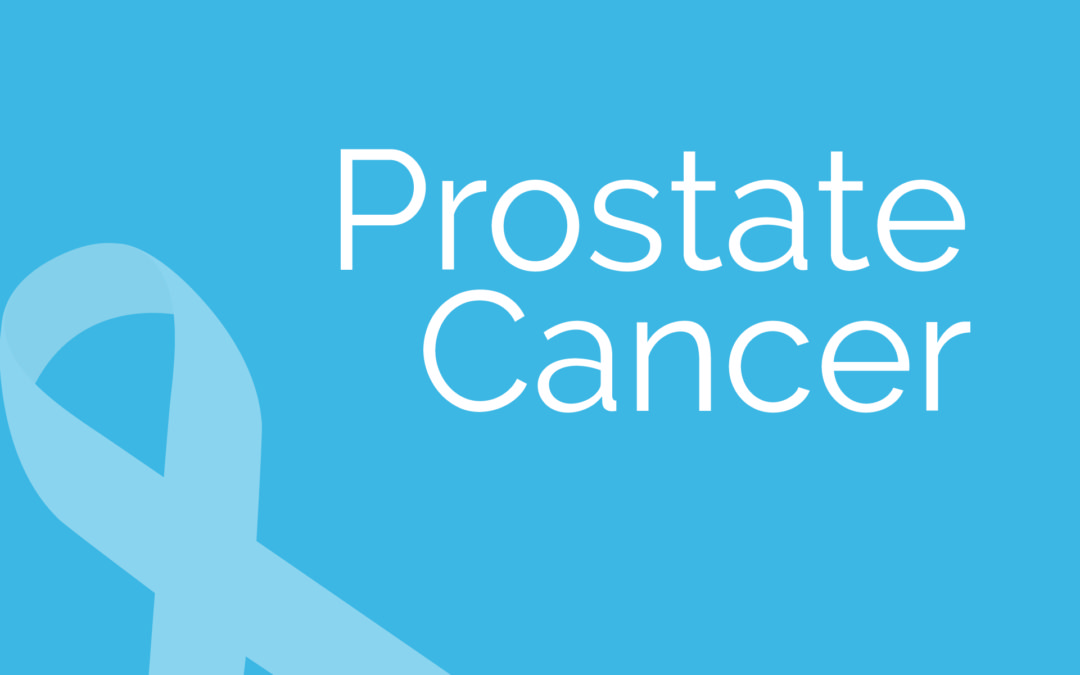
by Alexa Jett | Jan 20, 2021 | Cancer Resources, Advocacy, Prostate Cancer, Recent News
Dr. Herbert Geller, researcher and AnCan Advisory Board Member, had some great thoughts to share about clinical trials titled “Seeing Clinical Trials From Both Sides” for our partner ZERO – The End of Prostate Cancer. We liked it so much, we wanted to share it with you again. Thank you so much Dr. Geller for being an important part of AnCan, and the patient community.
Like many men with prostate cancer, my introduction to clinical trials started with my primary care doc saying “Your PSA of 3.1 is higher than last year, so let’s get it checked out”.
Off to the urologist, who found that my prostate was enlarged and scheduled a biopsy. But before I underwent the biopsy, one of my colleagues at the National Institutes of Health (NIH), a prostate cancer survivor himself, suggested that I participate in a clinical trial at the National Cancer Institute whose goal was to test whether MRI may be used to diagnose prostate cancer.
As a scientist and researcher, the decision to participate was obvious – first, if the MRI was negative, I could be spared a biopsy, but if it wasn’t then I’d be in good hands. Unfortunately, it was the latter – both the MRI and biopsy found cancer that spread outside the prostate. And so began my journey as a prostate cancer patient and my involvement in clinical trials.
The NIH is our nation’s premier research organization, whose mission is to improve our health through discovery. Every patient here – including me – is always part of at least one clinical trial, if not more.
While my next scans seemed conventional – CAT scan, MRI, bone scans, DEXA scan – the next one, a PSMA-PET scan, was under another clinical trial to evaluate PSMA to detect metastases and compare it with conventional imaging. The FDA has now approved PSMA-PET for this purpose, but the FDA approval was based on data collected by a different clinical trial conducted at UCLA and UCSF. So those of us who participated in a PSMA-PET trial have contributed to a major advance in prostate cancer treatment.
After my diagnosis and treatment, I was then recruited to another clinical trial which required a biopsy of my bone metastases. Though this trial was more invasive and required anesthesia, and would not directly benefit me, I gladly volunteered. While there was some inconvenience, and I did lose about a half day’s work, I didn’t feel any pain and I returned to my lab.
While these trials were designed to improve the diagnosis and treatment of prostate cancer, I’m also part of a trial here to evaluate the psychological effects of a cancer diagnosis. Like the biopsy, this one is not going to benefit me, but hopefully will lead to new insights to help others through our ordeal.
At the moment, my condition is stable with current treatment, but if things change, then I’m prepared to move on to clinical trials that are testing new therapies. While the most novel trials are Phase 1, which are designed to test toxicity, I’d probably look at either late Phase 2 trials, which generally are testing novel therapies that were shown to have manageable toxicities in Phase 1, or Phase 3 trials, which are the final steps before approval. These trials can both help provide a cure as well as needed information to move the field forward.
Because I am both a medical researcher and a patient, I see clinical trials from both sides. They are essential to advance medical knowledge. Without careful observation and controlled studies, we’d be back to the age of snake oil. And, yes, as a patient, trials require a level of commitment above normal therapy, but that’s a small price to pay for medical progress.
For information on our peer-led video chat PROSTATE CANCER VIRTUAL SUPPORT GROUP, click here.
To SIGN UP for the Group or any other of our AnCan Virtual Support groups, visit our Contact Us page.

by Rick Davis | Jan 10, 2021 | Recent News, Advocacy, AYA, Blood Cancers, Brain Tumors, Cancer Caregivers, Cancer Resources, Health Resources, Maui, mCRPC, Men 'Speaking Freely', Men's Breast Cancer, Multiple Sclerosis, nmCRPC, Nutrition, Ovarian Cancer, Prostate Cancer, RMC, Sarcoidosis, Thyroid Cancer, Women's Breast Cancer
Our Board Chair and long time moderator, Peter Kafka, tells us how he fortuitoulsy got his Covid vaccination last week. For the first time, Peter adds the High Risk/Recurrent//Advanced Prostate Cancer Group to his Moderation repertoire this week.
POKEY MAN
i just returned this morning from getting my initial Covid-19 Moderna vaccination. Happy to report that it was an uneventful event. My anxiety level was increasing in recent days as our positive cases began to tick up considerably out here on little Maui in the middle of the Pacific ocean. Information here is slow to filter down and when I inquired about the shot I was tole that it would be some time in April or May since I was not yet 75 years old. Then, I got a surpise call from the Pacific Cancer Foundation which I volunteer for in a support and advocacy capacity and they told me that they could get me into their priority group today.
I am certainly not bragging about the above, but I mention it because there was absolutely no hesitation or concern in me about going forward with the vaccination. In the past 7-years I have been poked and scoped and proded more times then I can count. This kind of comes along with signing up for medical treatment for advanced prostate cancer. I understand that there may be as many as 40% of Americans who may decline getting a Covid-19 vaccination according to polls and predictions. And this is a personal choice in our society. But I doubt that those of us who find ourselves in this subset of Prostate Cancer guys would be so reluctant.
Over the years I have met men who chose not to enter into any kind of treatment for their more advanced prostate cancer diagnosis. Some of these men are still around and others not. I always wrestle with what my role is in this decision. I can encourage, I can strongly suggest that someone at least consult with a doctor who might be more pursuasive than me, and most of all I can point to myself as an example of a man who has not suffered from a host of medical treatments thus far. But in the end everyone must live or not with the decision they make.
The other day we had an AnCan Webinar with Dr. Jonathan Epstein, the go-to pathologist at Johns Hopkins for second opinions. He mentioned that he does actually consult with some of the men who reach out to him. This brought a smile to my face when I recalled a good friend who was leaning toward his own alternative treatments for his GL-4+3 diagnosis. I encouraged him to get a second opinion from Dr. Epstein. On his own he called the office and Dr. Epstein listened politely for 10 minutes while my friend described his alternative treatment protocol. Dr. Epstein responded, “That is all fine and good and you can continue with that protocol but you need to know that without medical intervention this disease can kill you!” That was all it took, a few weeks later he was getting radiation and he is doing fine and we are best of friends.

by Rick Davis | Dec 21, 2020 | Advocacy, Blood Cancers, Brain Tumors, Cancer Caregivers, Cancer Resources, Men 'Speaking Freely', Men's Breast Cancer, Ovarian Cancer, Prostate Cancer, Recent News, RMC, Thyroid Cancer
Almost 18 months ago, AnCan was honored to host a fascinating, thought provoking webinar titled ‘The Language of Cancer’. To save repetition, click on this link to learn exactly what that means. Essentially we are speaking about how cancer patietns refer to themselves, and how the medical world may employ language that is unintentionally insulting.
By way of example, a doc often say a patient has failed a drug ……. NO, the patient hasn’t failed the drug – the drug has failed the patient!
Just the past week, when we were discussing this very webinar and topic in one of our virtual groups, one of our webinar panelists published a new article on the same old topic in Psychology Today, Prof Jamie Aten is the Founder of the Humanitarian Disaster Institute at Wheaton College, where he also teaches psychology. He has also lived with Stage 4 colon cancer diagnosed 7 years ago, though, thankfully, Jamie is currently NED – No Evidence of Disease.
If you live with cancer or are a caregiver, it’s almost certain you’ll have an opinion on this topic. We welcome your response if you’d like to write your own blogpost!

by Alexa Jett | Dec 10, 2020 | Advocacy, AYA, Blood Cancers, Cancer Resources, Men 'Speaking Freely', Ovarian Cancer, RMC, Thyroid Cancer
On Saturday, December 5th I had the amazing honor of not only being around amazing people, but I got to do it all proudly representing AnCan as well! I attended the Pushing Past Cancer: Stronger Together Virtual AYA Summit presented by UCLA Health AYA Cancer Program, UC Davis Comprehensive Cancer Center, and Stupid Cancer.
AYA stands for Adolescent and Young Adult in the cancer community, and I hope the terminology will extend in all of medicine. The age range is typically around 15-39, but up to 45 is being more widely accepted now. Our population has a lot of specific issues that pediatric and adult sides of oncology can’t fully reach. Dating, fertility, sexual health, work, college, and mental health are big concerns in our community.
I really enjoyed the conference tackling these issues in a way that’s comfortable for us. My favorite webinar was “Mental Health After Treatment” with Dr. Valentina Ogaryan (Licensed Clinical Psychologist at UCLA Simms Mann Center for Integrative Oncology). She talked about how important support is at any part of a cancer diagnosis. A neat term she used was “the support squad” (which is a great shout out to millennials!), and explained what yours could look like.
One of the closing panels about “What I’d Wish I’d Known…” was just incredible. To hear my peers voice the same feelings I had, and continue to have, was affirming and encouraging. No matter what the diagnosis, we still share similar anxieties and experiences.
An awesome highlight of the day was my team (The Orange Blossoms, because we all had a connection to the color orange, mine is my hair color!) won second place at the trivia after party. Fun fact: a lot of us here at AnCan love trivia games, and I had a lively conversation with Rick and Kim Stroeh about it. An AnCan trivia night would certainly be filled with stiff competition.
We currently have peer support groups for many of the AYA cancer’s present at the conference, Blood Cancer, Ovarian Cancer, Thyroid Cancer, Renal Medullary Carcinoma, Men’s Breast Cancer, and the additional support groups for Caregivers and Men Speaking Freely, we’re always expanding until we hit our mission of providing barrier-free support, no matter where you are!
Stay tuned, because we will be offering even more support for AYA’s in the upcoming year. We have lots of great things in the works, and I can’t wait to share them with you. We’d love to be a member of your support squad.

by Alexa Jett | Nov 23, 2020 | Health Resources, Advocacy, Cancer Resources, Prostate Cancer
Do I have the song by Marvin Gaye stuck in your head now? Great! It is a classic after all, even if I did a slight remix.
At AnCan, we are all about supporting you. In fact, no matter what the condition, it’s all we do. We believe that advocacy, navigation, and support should have no barriers, ever. And I’m even prouder to say we accomplish that daily. Seeing your faces at each virtual support group, or as an attendee in one of our webinars is plenty enough for us, but it is nice to be acknowledged sometimes too!
We want to give Victoria Cullen from A Touchy Subject a huge amount of thanks (especially on this week of Thanksgiving in the US.) for profiling us as a top choice for online support groups. Of course, we could never do this important work without all the many incredible people of AnCan.
If you want to know more of our “why”, I recommend you listen to Rick’s interview with Journal of Health Design. It is a perfect road map to where we started, where we are, and where we are going.
Don’t forget, even though it is Thanksgiving week, we wouldn’t spend it with anybody but you. Check out our event calendar and let us offer the support you need this holiday season, and beyond!
Once again, thank you Ms. Cullen for the shout out, and we’ll keep doing what we do best. Giving support to all!




